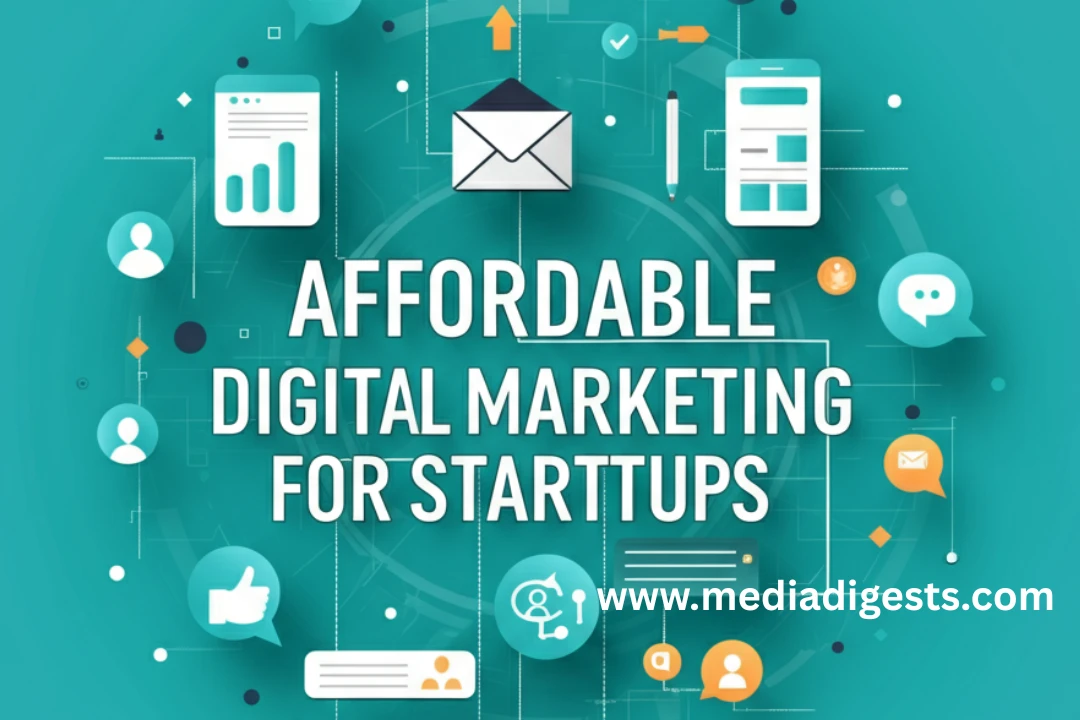Starting a new business is both exciting and overwhelming, especially when you’re counting every penny. Most startup founders know they need to get the word out, but often worry digital marketing is out of reach. Fortunately, effective and affordable digital marketing for startups isn’t just possible—it can be a game-changer if you use the right strategies and stay flexible.
This guide shares real-world tips and low-cost techniques to help you build visibility, reach new customers, and establish your brand online—without draining your startup budget.
Why Every Startup Should Invest in Budget-Friendly Digital Marketing
Every founder faces tough choices about where to spend. Old-school advertising like print and TV are pricey and hard to measure, making them a tough sell for new companies. With affordable digital marketing for startups, you can level the playing field. Digital marketing lets you zero in on your ideal customers, track results, and pivot quickly to what works—all without massive upfront costs.
Making Content Marketing Work for You
You don’t have to be a writing genius to make content marketing an asset. Content marketing means sharing blog posts, guides, or even short tips that help your audience and show what your brand is about. Good content builds trust with your audience and positions your startup as a valuable resource.
Kick Off With a Startup Blog
A blog is a simple and effective way to pull people to your website organically. Write about the questions and challenges your audience faces. Over time, these posts can help your startup rank in search engines and show that you really know your stuff.
Get More From Social Media Content
Social media may feel crowded, but it’s a free tool for building your brand and connecting with real people. Share useful or fun insights, talk about industry trends, or give followers a peek behind the scenes. Engaging posts—like polls, quizzes, and user stories—can extend your reach without spending a dime.
Affordable Social Media Marketing Strategies
You don’t need to conquer every platform. The trick for affordable digital marketing for startups is to focus on one or two places where your potential customers already hang out. This way, your efforts are targeted and more effective.
- Organic Growth Matters: Post updates often, reply to comments, and join relevant groups. Your genuine interactions mean more than polished ads.
- Try Out Free Tools: Use platform features like Stories, Reels, or LinkedIn articles to share quick updates or company wins.
- Collaborate Creatively: Team up with micro-influencers or other local businesses. Even small collaborations can give your startup exposure at a minimal cost.
Why Email Marketing Is a Startup Essential
Email may sound old-school, but it still packs a punch. Building an email list gives you a direct and personal line to your customers and prospects—something every startup needs.
- Look for Free or Cheap Email Tools: Many platforms offer starter plans at no cost, which is perfect for businesses just starting out.
- Personalize and Segment: As your contact list grows, sort contacts into segments so your emails stay relevant and readers stay engaged.
- Automate When You Can: Simple automations, like welcome emails or product updates, save you time and keep your audience connected.
Get Found Online With SEO
Search engine optimization (SEO) may sound intimidating, but it’s one of the most important strategies for affordable digital marketing for startups. With a few simple tweaks, you can improve your website’s visibility and bring in people who are actually looking for what you offer.
Basics of On-Page SEO
Start by using keywords your audience is searching for in your page titles, blog posts, and headlines. Make sure your site loads quickly, looks good on mobile, and is easy to navigate.
Targeting Local Searches
Local SEO helps get your startup in front of people nearby. Set up a Google Business Profile and ask happy customers for reviews. List your business in relevant local directories.
Smart Keyword Research
Use free keyword tools to discover terms your ideal customer is searching for. Aim for longer, more specific keywords—they’re usually less competitive and easier for new websites to rank for.
Conclusion: Making Your Marketing Dollar Stretch
Building your business doesn’t have to drain your bank account. By embracing budget-friendly digital strategies, you can create a steady stream of new leads, nurture lasting relationships, and carve out your space in the market. Focus on consistency, creativity, and connecting with your audience. Even on a small budget, your startup can make a big impact. For more practical marketing tips, check out the Small Business Marketing Guide by HubSpot.
Building your business doesn’t have to drain your bank account. By embracing affordable digital marketing for startups, you can create a steady stream of new leads, nurture lasting relationships, and carve out your space in the market. Focus on consistency, creativity, and connecting with your audience. Even on a small budget, your startup can make a big impact.
Frequently Asked Questions (FAQs)
1. What’s the easiest digital marketing tactic for startups to start with?
Content marketing and organic social media are simple and effective ways to get started. They mainly require your time and creativity, not big spending.
2. How much should a new business budget for digital marketing?
A good rule of thumb is to set aside 5-10% of your revenue for marketing. Start with what you can afford and scale as you grow.
3. Can founders handle marketing themselves at first?
Absolutely. Many marketing strategies—like managing social media and basic SEO—are manageable for founders, especially in the early stages.
4. How soon will I see results from SEO?
SEO is a long-term strategy. You’ll usually see the first meaningful results after three to six months, but those gains can last for years.
5. Is paid advertising ever affordable for startups?
Yes, if you keep a close eye on your budget. With platforms like Google Ads and Facebook, you can start small and carefully target the right audience, making every dollar count.
You may also read: How to Create a Business Plan Template

